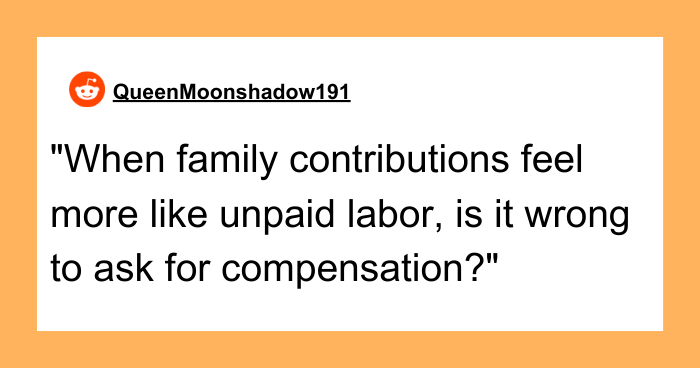But She’s Family’: Teen Sparks Debate by Asking to Be Paid for Baking 100 Cookies for Christmas Party
A skilled 15-year-old cookie-maker is wondering if she factored in too much into the family Christmas party equation when she asked her parents if she could receive an hourly pay rate for baking them over 100 elaborately decorated cookies. She has been bringing cookies to the annual party for the past two years, in addition to baked goods from her twin sisters. But this year’s gathering ballooned to more than 100 people, and her mom asked for an even greater quantity of cookies.
Since finals were about to start and the cookies took a full 4-days of time around schoolwork, she suggested being paid hourly for her labor. She had suggested pulling in $20 an hour but her mom soundly rejected the notion, insisting on family generosity over a paid service. Eventually her dad agreed to $15 an hour but her siblings are not happy and she is questioning whether she was unreasonable.
Some kids might expect monetary compensation for helping parents around the house

Like this teenager, who refused to bake 100 cookies for parents’ party for free

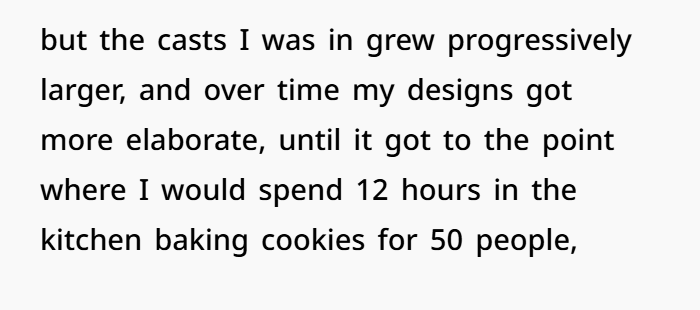

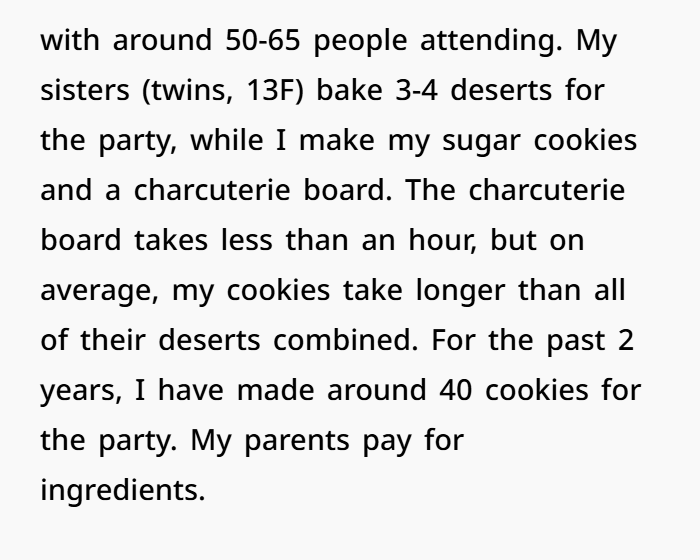



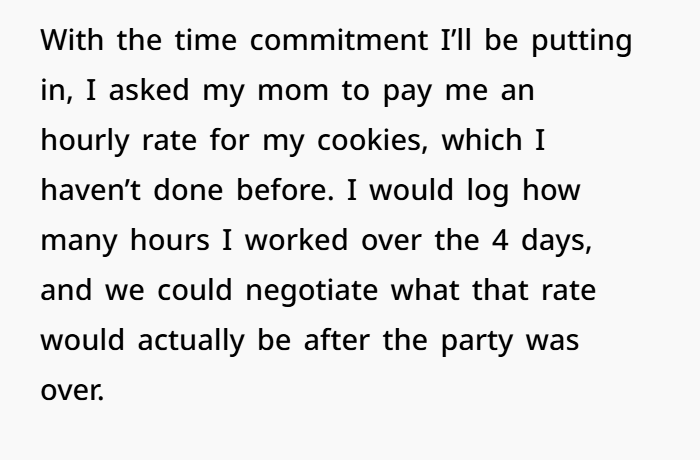
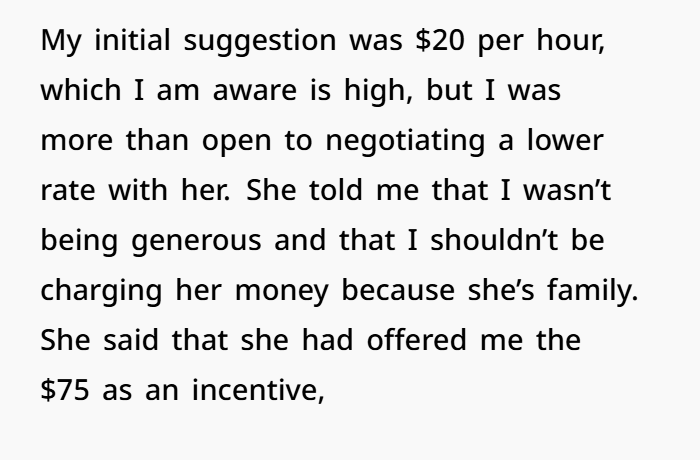
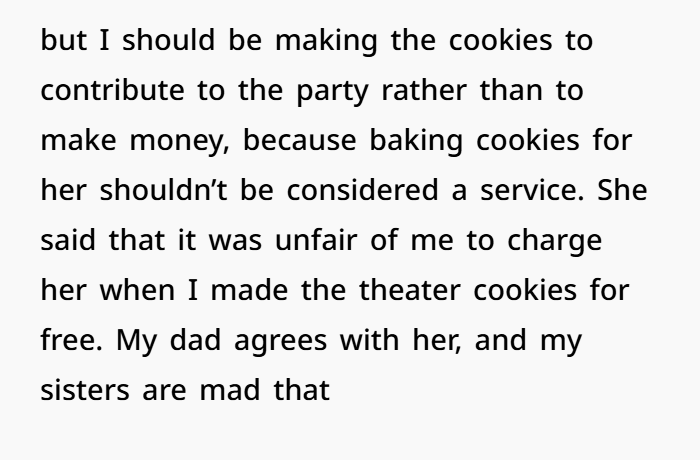
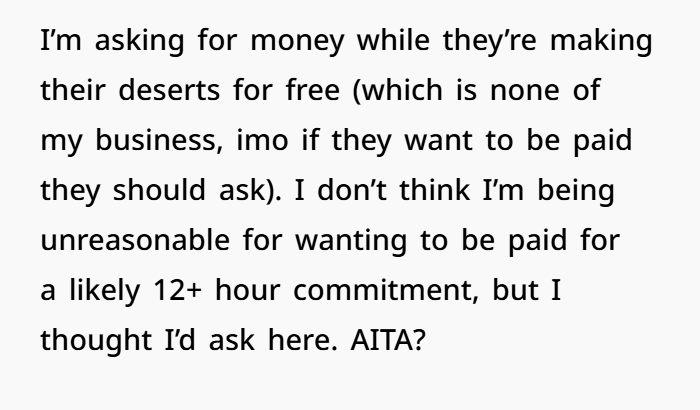
Later, the teenager updated the post with some clarifications


The Value of Labor, Family Expectations, and Fair Compensation
1. Time, Effort, and the Value of Labor
It is a time-consuming and skill-intensive process to bake and decorate such a large number of cookies with royal icing. Her 12+hour dedication to studying requires extensive time management, so requesting compensation is reasonable when finals are approaching.
Indeed even the most part-time, basic of work for teenagers pays on average anywhere from $10–$15/hour based on skill and complexity (Fair Labor Standards). Her cookies, which feature elaborate designs and premium materials, could fetch higher prices in a professional environment.
2. The Family vs. Professional Service Debate
The mother arguing that family contributions should not have a dollar value was expressing the deeply entrenched sociocultural expectation of family care at no additional cost. But the scope and complexity of the baking is too much for casual assistance. And on the more important front, where do comparables of her cookies and her sisters simpler desserts come in?
Expectations of family often clashed with the benefits of specialized labor. Generosity happens, and sometimes on a grand scale, but banging on the same drum over and over again can result in burnout if we forget to nourish and support one another.
3. Setting a Precedent for Healthy Boundaries
In fact, she is establishing the worth of her labor with her practice to ask for payment. It’s a key life skill, particularly for women, who are conditioned to over/under perform for less than adequate compensation. It’s a sign of maturity that, instead of refusing outright, she negotiates.
4. Practical Compromise: Family vs. Commercial Rates
In the family context, $15/hr is a reasonable compromise that recognizes her ability and effort. If she is being compensated for her work, well, so should her siblings, right? Her mother also has low-balled her with a flat rate of $75, valuing this project at only $6.25 an hour for a 12-hour project.

The author provided more information in the comments

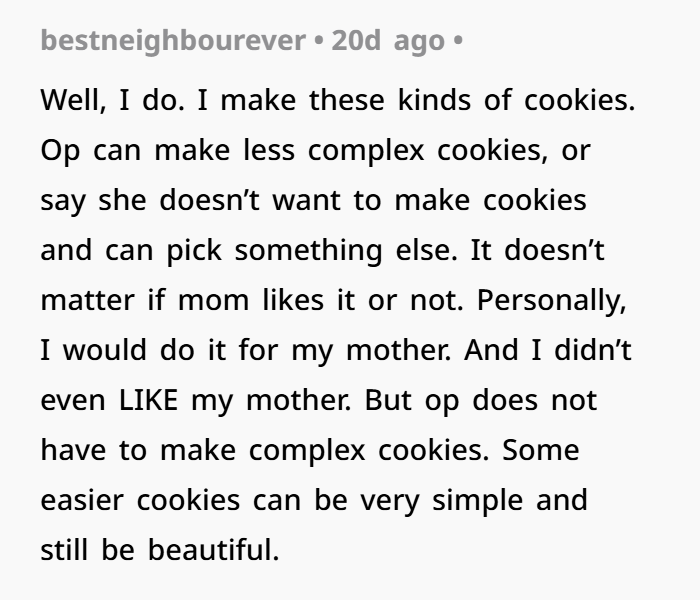


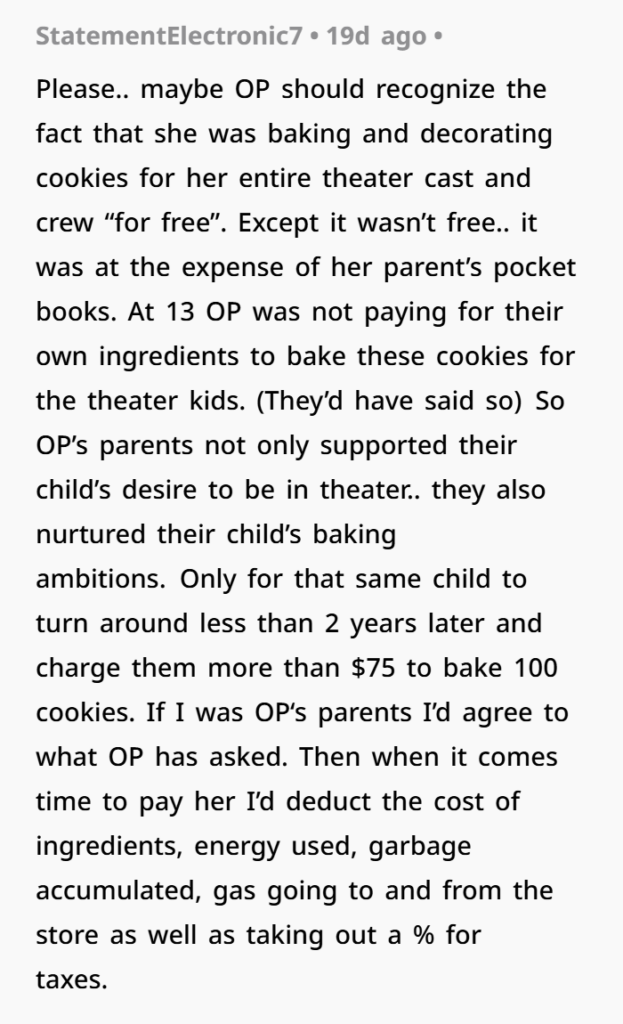

Teen Is NTA For Asking To Be Paid For Large And Time-Consuming Baking Project Although family helps are mostly offered as a goodwill gesture, and frankly, that may be the only way I can imagine Chanel ever accepting something like this, and while I digest that something that becomes such a big party needs to be treated like a workforce, her work merits a good pay with money in the bank.
In standing up for herself, she is declaring the worth of her work and reminding her relatives that it is not normal to give[…]

